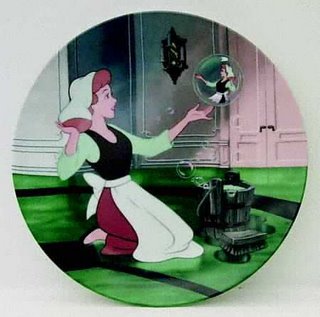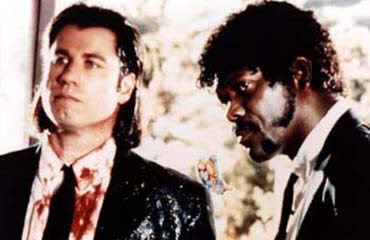"Leaves appear green while they are alive. Only after their death do we see their true color."
The Shepherd of Canaan
"The dead know nothing."
Solomon
|  |
Once upon a time in Haiti there was a beautiful young woman who taught children at a school by the ocean. The children talked about her good looks and they were drawn to her remarkable wisdom. When she smiled the boys sighed, and when she spoke the students listened. Unlike the other teachers, she usually carried the full attention of her class.
There was another teacher at the school who was very old, and her students were not eager to listen to her instruction. They weren't drawn to her appearance, and sometimes the elder teacher overheard them say they wanted to be in the younger teacher's class. This infuriated the older teacher.
One day while her students were at gym, she decided to watch the younger teacher with her class. The students seemed responsive to her questions - at times interested in the material - and, was that an apple on the desk? Surely there was no occasion. Her face darkened, and she thought, "If I had her advantages ... I could hold their attention!"
After school was out that day she went to her home in the mountains and prepared - as they still do somedays in Haiti - a mixture from rare fish extracts and powerful botanicals. The concoction would deaden her understanding and turn her face pale as death. Without the mental ability to resist she would have the young teacher do tasks around her mountain home.
So the old teacher took a vial of her tasteless potion to school and - while the young teacher was out at recess - she dripped the substance into the young teacher's tea. Before the day was over she felt ill. When evening came she was rambling and making no sense. The next morning no pulse could be found and they pronounced the poor girl dead. There was a large funeral and nearly all her students came to mourn her passing.
That night the older teacher went to the cemetary and dug up the body of the young teacher. Using a mixture of strong salts and cucumbers she woke the young teacher from her rest. She opened her eyes and sat up.
"Good evening!" The old teacher said.
The younger teacher smiled.
"What's your name?" The older teacher asked.
The young teacher looked down and shook her head.
"Well, where do you live? What do you do?"
The young teacher shook her head and mumbled something.
"Never you mind. You can stay with me. You'll just do some work around my place."
The young teacher - her face already changing in appeaerance - smiled and went with the older teacher.
The young teacher was immediately put to work at her captor's home in the mountains. She cleaned the walls and cabinets. She carried produce around the garden. And she sensed that something was terribly wrong. But everytime she went to the old teacher to say something, she began moving her mouth but strange and unusual sounds came out.
She did not know that the old teacher continued to put the botanicals in her food.
As time passed the young teacher seemed to grow much older. Her hair turned gray. Her face grew wrinkles. She was not fed much, and her face appeared emactiated and tight. The older woman began experimenting with herbs and was able to gradually make herself appear younger. Her students began to listen in class, but some found her younger appearance a bit strange.
While the older teacher continued to gain prominence at her school, she felt a heavy burden come over her. She refused to see it at first, but it didn't leave. "Is it guilt I feel? After all I have suffered, am I to believe I am the guilty one?" She paused. "If only I could find the source of my unhappiness and look it in the face!"
As the older teacher was saying these words, the young teacher brought a bushel of ripe tomatoes from the garden - almost stumbling as she walked. "What is that?!" The older teacher thought. "Is that a smile on her face?"
She pulled the teacher's face forward to examine it. Her eyes looked weary from the potion, but they also seemed ... full of life and peace. The older teacher searched every corner of her eyes, but she could find no ill-will hidden in them. She almost appeared to be glad to do her work.
The older teacher exclaimed, "Here! This is it!". She ran from her house to get away. She didn't know where she was running. If she hid under a rock it would still be there. If she lived alone in the forest it would be there too. The faster she ran the closer it came to her.
When the locals found her the next day, the older teacher was lying at the bottom of a great ravine. The people wept and said, "How unfortunate that such a teacher should die at a time when she was so prominent." Other people blamed God.
The younger teacher - a bit uncertain of her surroundings - wandered into the forest one day. She began eating some of the berries and bananas, and her appearance slowly began to change. The area began to look more familiar to her, and she began to look more young and beautiful again.
One day she went into the town and over heard people talking about growing tomatoes. The young teacher suddenly began talking about how tomatoes are grown. She was surprised to find she was able to speak.
One of the people listening to her said, "Aren't you the lady who used to teach us nearly two years ago?". And the young teacher recognized the face of her old student.
"I knew it was you because you seemed so knowledgable and pleasant to the eyes." The student told her. The young teacher laughed - for the student's words seemed bizarre somehow.
In time the young teacher regained her health and continued to teach at the school in Haiti. Every so often she looked in the mirror and asked herself why life was so wonderful.






